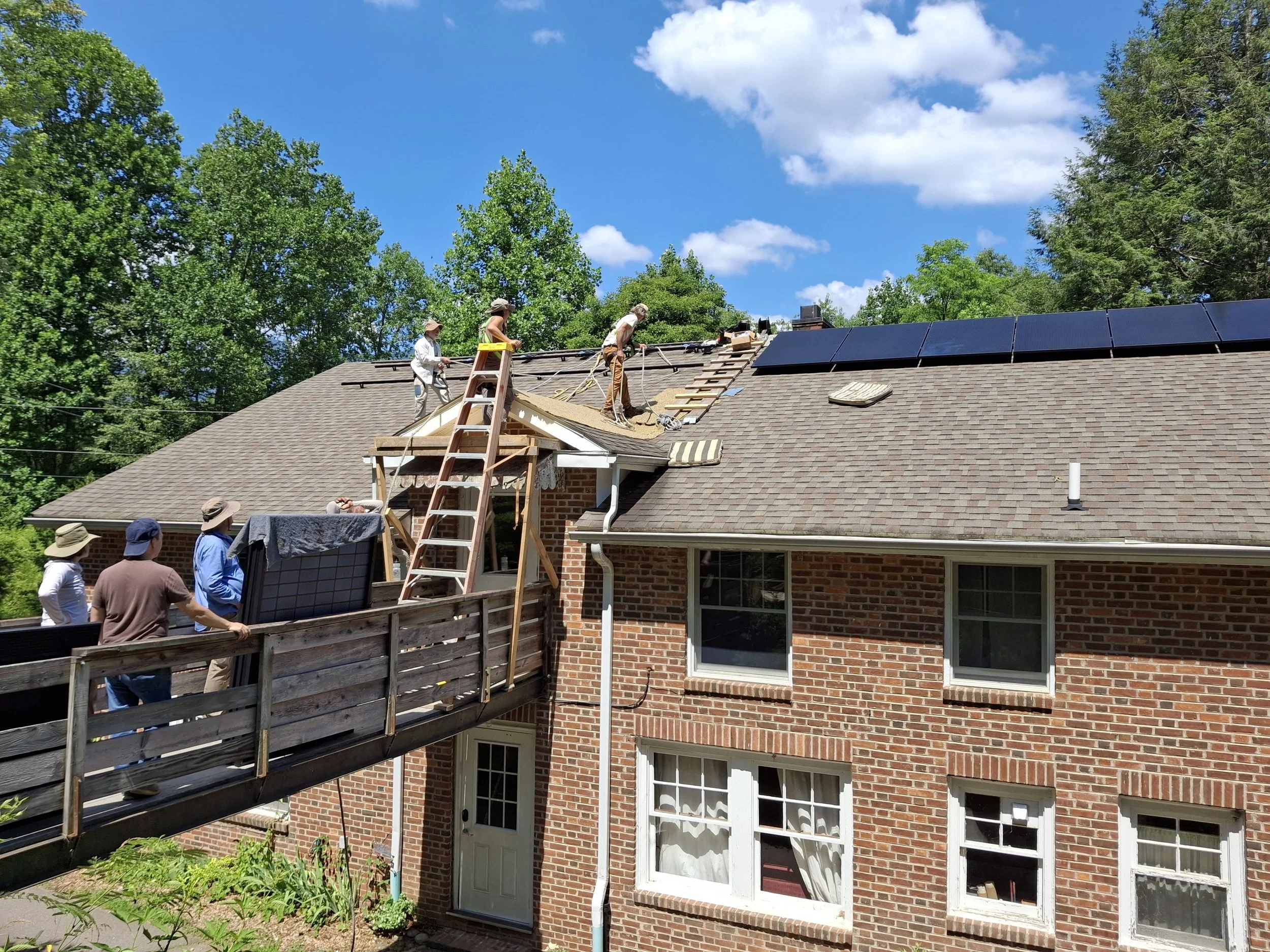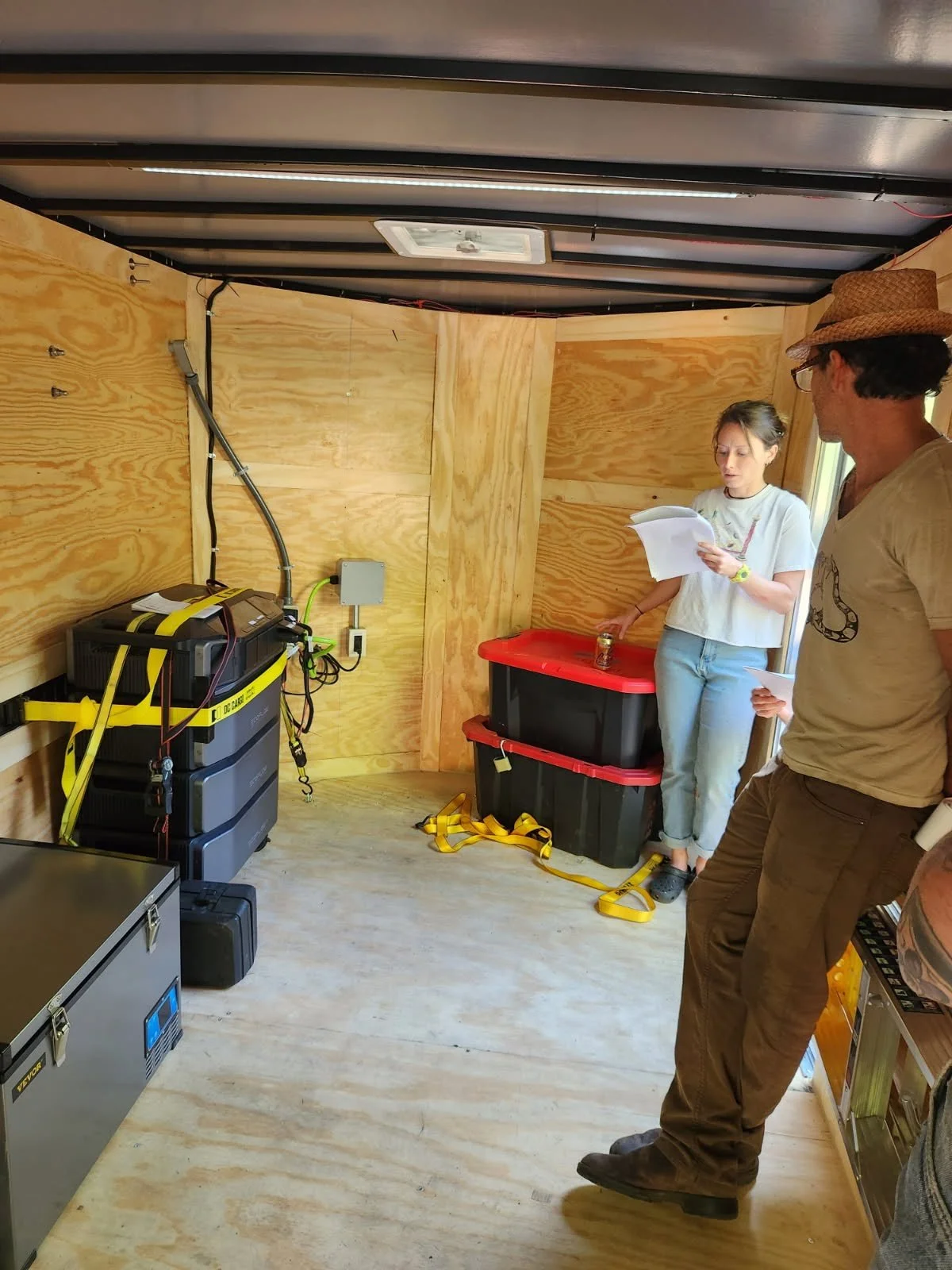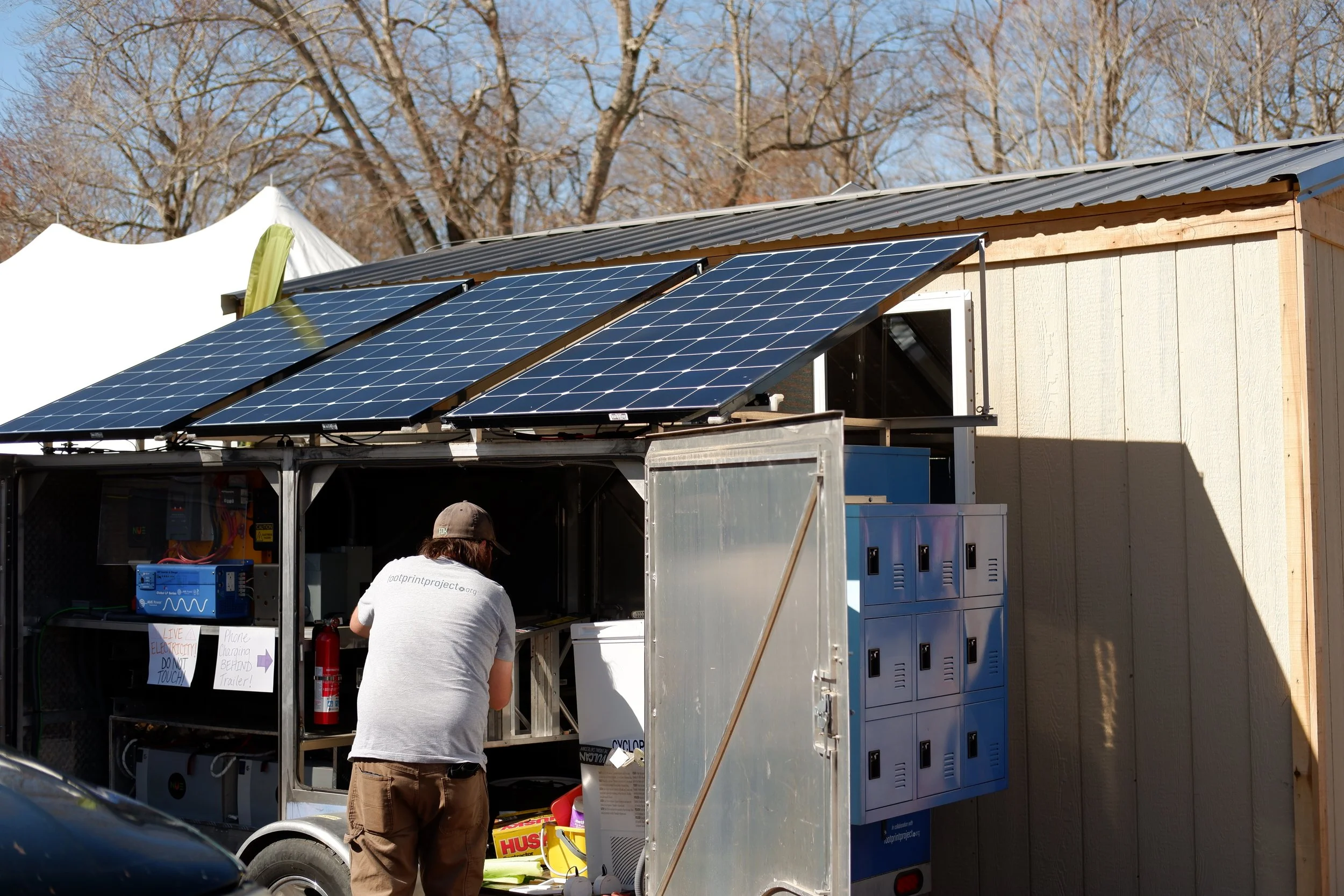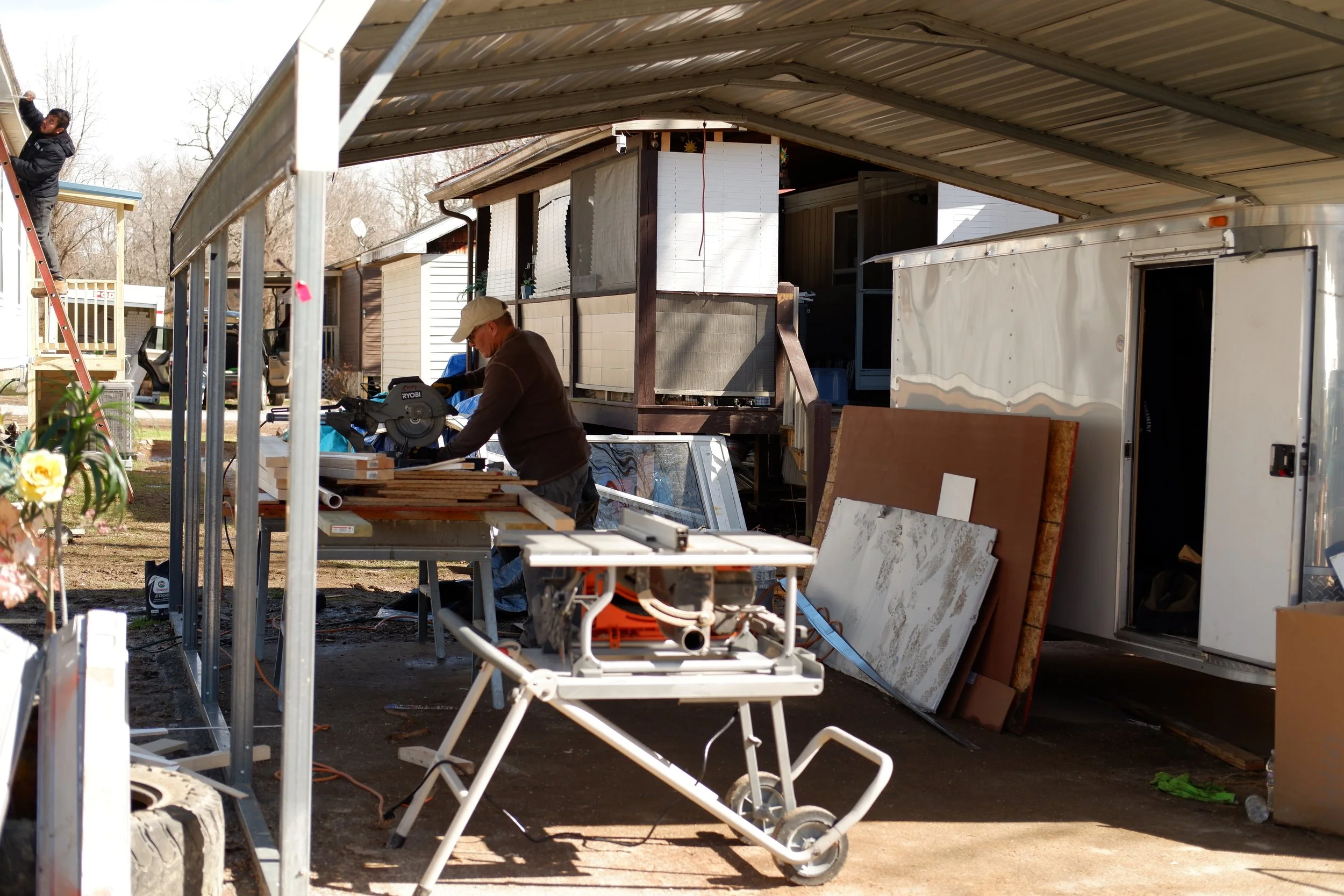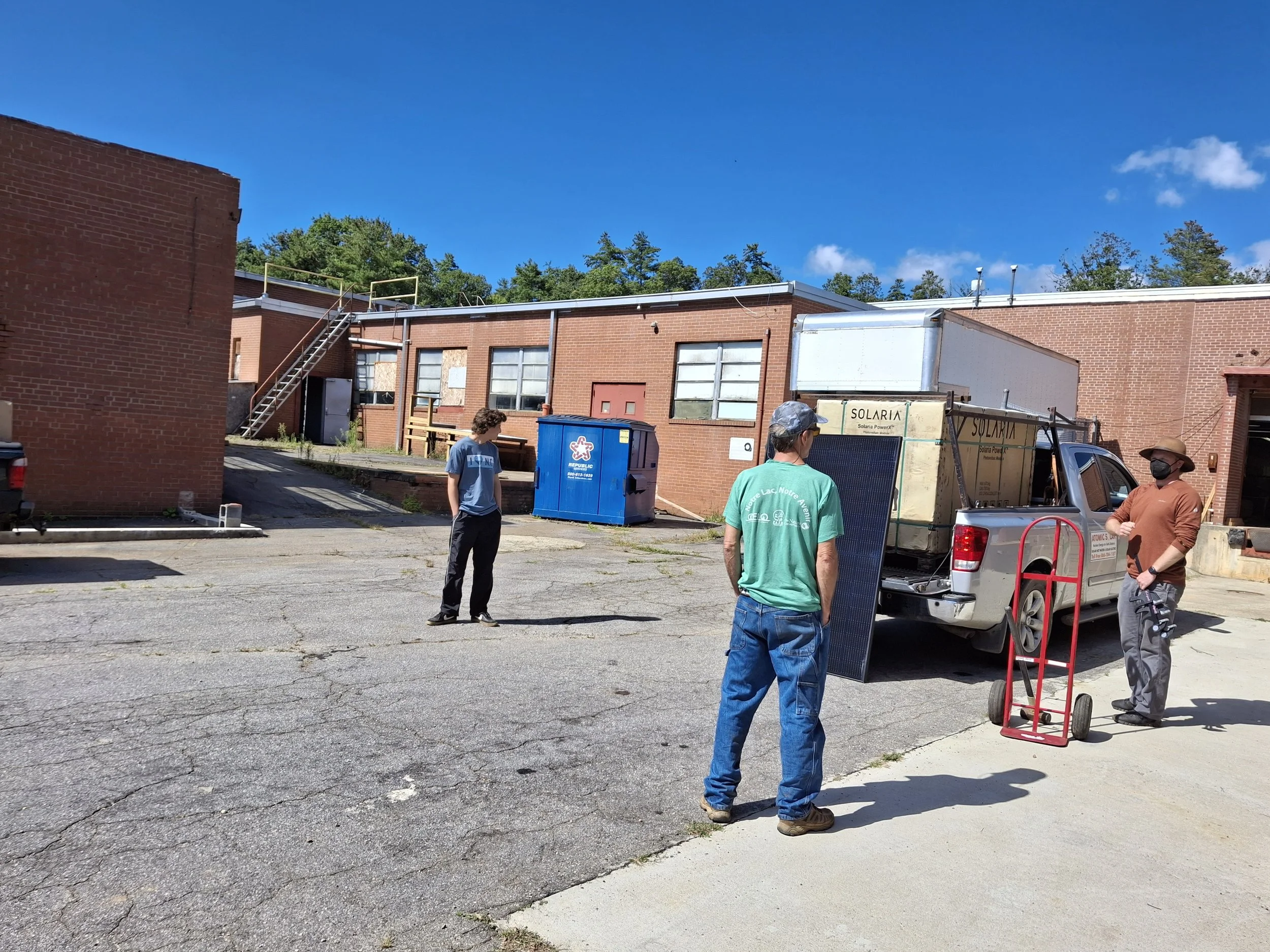Resilience Has an Address in Western NC: New Solar Microgrids Strengthen Communities After Helene
[Check out the magazine view above for the full article!]
Regional partners are investing in Resilience Hubs—community anchors that supported the Hurricane Helene recovery and will keep people safe and connected in future storms. Non-profit organizations Footprint Project, Invest Appalachia, and Appalachian Voices (fiscal sponsor of the Appalachian Solar Finance Fund) are backing Resilience Hubs to support Helene recovery and long-term community strength by providing permanent and autonomous solar power installations that keep people safe and connected.
Central Appalachia has weathered generations of disinvestment, and serious infrastructure gaps are being exposed by increasingly frequent climate-driven disasters. But across the region, communities are creating solutions that strengthen daily life and long-term preparedness in small towns, rural areas, and underserved neighborhoods.
Some microgrids are mobile, while Resilience Hub installations are permanent improvements to trusted local spaces—often community centers, churches, fire departments, schools, and businesses that serve as gathering places. The Resilience Hubs we support are equipped with solar power and battery storage to sustain, and provide back-up power for, critical functions including communication, medical device operation, medicine storage, and food preparation. They can also provide other essential services and resources, such as food pantries and youth programs. Year-round, they cut utility costs when the grid is up, provide backup power during outages, expand access to services, and strengthen community ties.
“It’s been beautiful what our team and many partners have accomplished since the storm. These solar microgrids not only make us more prepared for the next grid interruption, they strengthen the electric grid and make us less dependent on fossil fuel supply lines.”
Five New Resilience Hub Projects
Celo Community Center Permanent Microgrid (Yancey County, NC):
After a month without power post-Helene, the Celo Community Center became a hub for supplies, communication, and childcare. A new microgrid allows the center to continue serving its role during emergencies while reducing energy costs year-round. Gred Gross, building manager, expects the installation to offset most of the center’s power use: “That’ll save us quite a bit of money over the course of the year. And, of course, if we have another outage, we’ll be ready.”
Broad River Fire Department - Shumont Substation (Buncombe County, NC):
Cut off for weeks after Helene by flooding, landslides, and destroyed roads, Broad River’s fire department became a lifeline for residents left without power. A new permanent solar microgrid now ensures first responders can keep medicine safe, power critical equipment, and maintain communications during future crises.
ROAR Microgrid Community Trailer (Madison County, NC):
Mutual aid group Rural Organizing and Resilience (ROAR) stepped up to serve the hard-hit Marshall area in the aftermath of Helene, providing food, water, and essential supplies when resources were scarce.
“Hurricane Helene showed us just how important it is to have decentralized, grassroots infrastructure.”
With a solar-powered microgrid trailer featuring 3 kilowatts of generation and 18 kilowatt-hours of storage, ROAR’s trailer supports emergency response and everyday community needs.
“Our mobile solar trailer allows us to provide power for emergency communications, medical equipment, water wells, and more when the grid goes down, allowing us to provide crucial support to communities in the immediate wake of catastrophes.”
Alan Campos Mobile Home Park (Buncombe County, NC):
When Helene destroyed homes in this largely Spanish-speaking community, CORE and partner organizations stepped in to rebuild more than 25 homes. A solar trailer designed to power tools and operations has kept recovery efforts moving.
Double Island Volunteer Fire Department (Yancey County, NC):
Without power for six weeks after Helene, Double Island coordinated rescues, supply distribution, and volunteer housing. With new solar microgrid equipment, the department is prepared to maintain essential operations and protect its community during the next disaster.
“Double Island kept serving their neighbors even when supplies were scarce, rescues were dangerous, and roads were closed. Funding a Resilience Hub here means they will have the reliable power and resources needed to keep people safe in the next crisis, and to thrive long after recovery.”
Overview:
These projects, driven by a small group of determined partners, have accelerated Appalachia’s long-term resilience and preparedness. Footprint Project’s Resilience Hubs are now poised for a significant scale-up, as the state of North Carolina recently announced a $5 million investment in solar and battery storage microgrids for emergency responders and community-based organizations.
“The people who are still displaced and struggling to regain their livelihoods since Helene were living day-to-day before the storm. For future resilience, it’s vitally important that projects–-to improve readiness—are built by and with the communities on the frontlines of climate disasters.”


